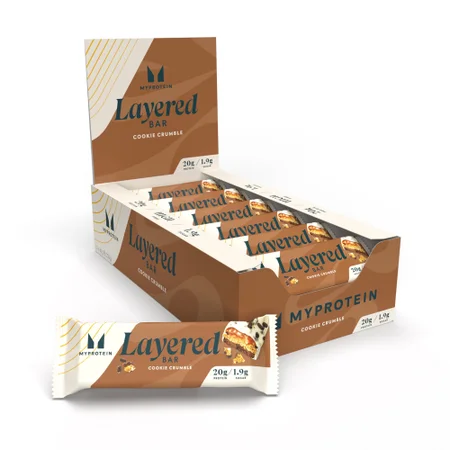Save Money By Limiting Food Waste | Nutritionist Shows You How

The amount of food we throw away is a big problem in the UK. Although there was a decrease during the national lockdown, individual household waste is now similar to levels reported in 2018, according to sustainability charity WRAP.
While households are not the only source of food waste — manufacturers, supermarkets, and hospitality and service industries all contribute — they are responsible for most of it. In the UK, 70% of total food waste comes from them, equivalent to £14 billion a year.
Aside from the environmental impact and ethical issues — an estimated 25 million tonnes of needless greenhouse gas emissions during a time of widespread food bank use — it’s a lot of money to throw in the bin. Split across the near 30 million households in the UK, it adds up to more than £450 saved for each household over a year.
Food prices are rising, so better planning, buying and consumption habits could lead to money saved and needless waste avoided. Knowing how to interpret labelling, what foods to buy, and simply being more aware of the issue can help lessen the impact on society, the environment and your finances. Here are my tips on how you can save money while being waste conscious.
Best before vs use by
Need an easy way to confuse someone? Just ask them what the difference is between “best before” and “use by” dates. Consumers often mistake these dates as meaning the same thing, and it’s easy to see why.
“Best before” is about quality and simply refers to the date when produce begins to deteriorate in flavour and texture. It’s past its best but most of the time still fine to eat.
“Use by” is different. This date is often used for fresh and perishable foods like meat, fish and dairy. It’s estimated by the manufacturer or supermarket as the point when these foods are likely to “go off” or no longer be safe for consumption.
The problem with “use by” dates is food goes from fine to eat to ready for the bin overnight, but the reality is this is not how food deterioration works. What type of food it is, how it’s stored, and how it looks and smells are all better indicators of whether something is safe to eat or not.
What foods have a longer shelf life?
Different types of food age in different ways. To avoid needless waste, we can use our senses (as well as a little common sense) to determine whether food is simply beyond its best or no longer safe to eat.
Fruit and vegetables will eventually rot. Air, moisture, light and temperature all contribute to this. You can tell because they will go brown and eventually develop mould.
Bread and baked goods typically dry out and go stale. Staleness does not mean unsafe for consumption. Storage in a moist environment can lead to moulding. Mould on bread is harmful and should not be consumed. (Unlike some other types of mould present on certain cheeses and salami).
Meat and seafood are mainly degraded by surface bacteria. A change in colour and smell are strong indicators they are no longer safe to consume.
Dairy products are unusual in that the bacteria that they contain can sometimes actually act to preserve rather than degrade them (although over time this may lead to a change in flavour or texture).
This depends on the dairy product itself, though. Cheese can last for a long while in the fridge if stored correctly, but milk has a much shorter life. If milk has clumps or smells unpleasant, it’s no longer safe for consumption.
Many foods have a long shelf life. These foods may last longer due to their natural composition or because of how they’ve been preserved or manufactured.
These cupboard essentials can last for months with no deterioration in quality if stored correctly:
Oats - Tinned goods (soups, canned fish, beans, lentils, fruit, vegetables, etc)
- Condiments
- Rice and other grains
- Dried pasta
Honey Cooking oils Salt, pepper, and other seasonings Protein powders and bars
These are just a few but there are many, many more.
Tips on how to avoid food waste
Buying long-lasting foods is just one strategy for reducing food waste. Here are a few more:
Plan your meals: Buy only the ingredients you need and avoid impulse buys. Food bought without a plan may end up forgotten about, rotting away at the back of the fridge.Use your freezer: Frozen fruits and vegetables retain most of their nutrients, and they last so much longer than fresh. Meat and fish can also be put in the freezer if you’re not going to get the opportunity to use them (as long as they’ve not previously been frozen).Learn to love leftovers: Food doesn't need to be eaten fresh out of the oven to taste good. In fact, many dishes taste even better the next day. So instead of throwing out your leftover chilli or spaghetti, put it in the fridge for lunch tomorrow. You can even get creative and incorporate leftovers into other recipes.Compost: Even if something is no longer at its best, it doesn’t need to be chucked in the bin. Food waste can be turned into compost, which is great for your garden.Donate spare food: Instead of chucking away food you don’t plan to eat, give it to a local food bank. Fresh veg, meat, fish and dairy may not be accepted, but unused tinned and jarred goods will be appreciated. Help tackle food poverty while reducing food waste.Educate yourself and others: The more we learn about the problem of food waste, the more we can do to reduce it. Talk to your friends and family about food waste and share what you've learned with them. A family working together to reduce food waste will be much more effective than an individual.
Take home message
Reducing food waste is vitally important, not just because of the financial cost, but also because of the difference it can have on the environment and for helping to tackle food poverty.
Knowing the difference between “best before” and “use by”, exercising a little bit of good judgment and common sense, and planning food shops better can all play a big role in helping to reduce the amount of food you throw away, and could even save you a tidy sum of money.
Follow these tips on how to avoid food waste and talk about the issue with others. Simply being more conscious of our consumption and waste habits may even lead you into a new world of conservation and food education.
READ THESE NEXT:

'Limited Evidence' Calorie Labelling Will Lead To Change, Nutritionist Says
"It’s incredibly surprising that this legislation was rolled out without even a pilot study."











